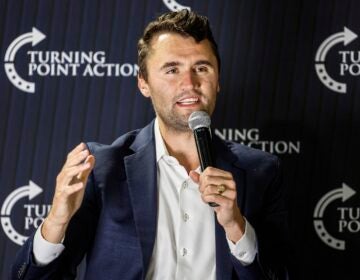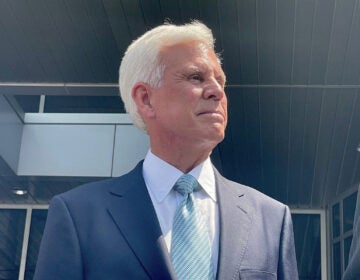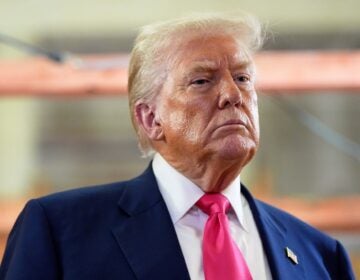Ramsey sidesteps political minefield, focuses on leading Philly police force
ListenThe future of Philadelphia Police Commissioner Charles Ramsey has been a hot topic on the campaign trail, but the man himself says he plans to keep his political opinions to himself, and put his fate in the next mayor’s hands.
“I’ve been around a long time. I’m pretty resilient,” said Ramsey Thursday after appearing at a forum of a presidential task force, the My Brother’s Keeper Alliance, designed to boost opportunities for young men of color.
“My only focus is on doing the best job I can while I’m here. I’m blessed to have been here for as long as I have, to work for a person like Mayor Nutter … whatever the future holds, the future holds,” he said.
Ramsey found himself in the headlines this week after mayoral candidate and state Sen. Tony Williams said he’d replace the commissioner, due to the police department’s use of controversial “stop and frisk” techniques. Two other candidates, Lynne Abraham and Jim Kenney, said they’d keep him on the job, and Nutter opined that “anyone who is not smart enough to ask him to stay is probably not smart enough to lead the city.”
In response, Ramsey said that no one will hear him complaining if the next mayor decides to replace him. But at Thursday’s forum he didn’t sound much like a man anxious to walk away from his job.
“I asked the Department of Justice in 2013 to come in and take a look at our department. They came up with a lot of recommendations, good recommendations,” Ramsey said. “We’re in the process now of … implementation of that. There are a lot of things we’re doing in the department, and I’m pretty excited about it, quite frankly.”
As a panelist, Ramsey spoke with feeling about the challenges faced by young men of color and police officers alike. Both the kids on the corners and the cops on the beat are faced with constant, often traumatic challenges, he said. Both can find themselves overwhelmed, becoming either disengaged or “hypervigilant,” victims, Ramsey said, of a kind of home-grown PTSD, triggered not by war but by the routine violence and conflict of a poverty-stricken community.
“We’ve got to do a better job of understanding the collateral damage that’s done in a lot of our neighborhoods, and have systems in place to provide the kind of support that people need in order to recover, be resilient,” Ramsey said.
For young people, that means education, mentoring and community support, Ramsey said. And for police, it means developing sound community-policing techniques, learning how to handle conflicts fairly and building trust with residents.
But when it comes to politics, Ramsey said, he had no advice to offer voters or candidates. He said he had not consulted with any of the current mayoral hopefuls, and does not plan to do so.
“I don’t think it’s appropriate. I’m police commissioner. I don’t get caught up in politics,” he said. “Do I vote? Absolutely. But it’s my private choice. But I don’t think it’s appropriate for someone in my position to use whatever influence they may have as relates to an election. That’s something people decide.
“The one thing you can count on from me, when I do step down, is not hearing from me,” Ramsey added. “Because I believe that whoever takes over should be able to run the department the way they see fit, and not have someone standing on the sidelines taking shots at him. This is a tough job.”
WHYY is your source for fact-based, in-depth journalism and information. As a nonprofit organization, we rely on financial support from readers like you. Please give today.




